














than our updated forecast suggests.
“With that in mind, we continue to note that it’s still early days in the season and a wide range of milk
THE FORECAST price is under more pressure fol lowing last week’s steep decline in whole milk powder prices on Global Dairy Trade (GDT).
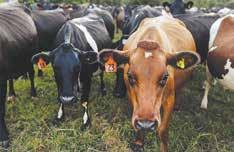
With farmers struggling under rising interest rates and farm input prices, the latest auction results pro vide little comfort behind the farm gate.
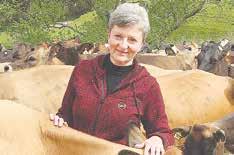
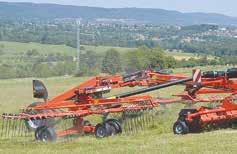
Fonterra’s current range of $7.25/ kg to $8.75/kgMS is almost certain to be lowered at its next forecast milk price review. ASB is warning that a milk price around $7/kgMS could be a possibility.
Whole milk powder prices – by far the most important component in the milk price calculation – tumbled a whopping 7.9% last week.
ASB economist Nat Keall says that takes WMP prices to their lowest level since early 2019 and represents their largest single auction fall since early 2017.
“WMP offer volumes were higher this auction, but the scale of easing was still well in excess of the circa 3% fall the futures market had flagged,” he says.
ASB is sticking to its forecast of $7.25/kgMS for this season.
Keall notes that most forecasters and the futures market have lowered their milk price expectations over recent weeks and months as demand has flagged.
“But given our below-consensus forecast, the threshold for us to lower our own forecast hasn’t yet been reached,” he says.
The NZ dollar has also underperformed our expectations, providing a bit of an offset, notes Keall.
“In any event, Fonterra’s guidance range has looked too strong in our view for some time, and we expect both the upper and lower end of the range to be lowered over the coming weeks – perhaps to $6.75-8.25/kgMS or so.
“Not long ago, market expectations were wildly north of our forecast for the season but are now a lot closer – currently trading around $7.35/kgMS.
“There is less to be gained from hedging or taking advantage of Fon-
attractive for some.”
Westpac senior agri economist Nathan Penny says at this point of the dairy price cycle, they had expected prices to continue to fall in the short term.

“Recall that global demand is weak, notably from our key market in China,” notes Penny.
“Indeed, when we recently revised our 2023/24 milk price down to $7.80/kg, we had factored in further price falls over August and September – with expectations for a stabilisation and recovery later in the season.

“That said, the fall last week was larger than we had expected. And while it is difficult to read too much into one auction result, it does point to prices potentially falling by more
There was a silver lining to last week’s auction: China took a little bit more product this time around.
But Keall says not in a way that should give farmers much comfort.
About 47% of the WMP sold was bought by ‘North Asia,’ this auction, versus 27% a fortnight ago, the highest proportion since May.
“But that increase looks to be a function of bargain-taking and an absence of much competition from other regions, rather than a function of any recovery in underlying demand.
“And it’s still a lower portion than we would often expect from China at this time of year.”
Keall says not much has changed in terms of the demand and supply fundamentals.
“While this auction surprised to the downside, it is all a question of degree.
“Indeed, we’ve long highlighted our expectation that dairy prices faced further easing ahead given the continued underperformance of the Chinese economy, slower growth elsewhere, and the likelihood that global dairy supply is past its lows of recent years.
“While supply isn’t surging ahead everywhere, it looks to be sufficient to meet what subdued demand is out there.”
the food production sector.
ICONIC KIWI company
Waikato Milking Systems (WMS) has been sold to an Italian conglomerate but it’s business as usual for the milking solutions provider.
In May, it was announced that Interpump Group, a global company listed on the Milan Stock Exchange, had paid around NZ$54 million for WMS to joint owners – Tainui Group, Ngai Tahu Capital and Pioneer Capital.
WMS executive chairman Jamie Mikkelson, who retains his role under the new owners, says the acquisition is part of Interpump’s continual investment into
He says Interpump was attracted to WMS, a well-performing business which had more than doubled its business to $80m in the last four years.
Interpump is also keen on WMS’ strategy to invest in dairy technology and software tools developed for precision dairy farming.
This includes ErgoPOD, touted as a step change in milking that revolutionises the way cups are presented and managed in the milking shed. The ErgoPOD prototype won the 2023 Prototype Award at the Fieldays Innovation Awards in June.
A result of four years of research, ErgoPOD
is said to halve the time to apply milking cups, remove multiple hazards for a cow entering and leaving the milking platform, provide opportunities for precise measurement and control of milk quality, and speed up the process of a cow exiting a rotary milking platform.
Mikkelson says the result is an internationally viable product that enables faster, safer milking by a wider labour pool.
“We are now in a great position to push on through the remaining stages of development over the next 18 months towards a game-changing market entry,” he says.
WMS is Interpump’s first acquisition in New Zealand. Two of the com-
pany subsidiaries – high pressure pump maker Hammelmann and stainless steel processing line
maker INOXPA – have a presence in Australia.
Mikkelson says Interpump isn’t in the busi-
ness of buying companies and then offloading them for a quick profit.
“They are a long-term investor, they have high expectations around performance, but they don’t come in and change the name of the company,” he says.
“They expect the company to continue under its own name and management team and for the business to grow.
“As long as the business performs in line with expectation, they reinvest profits in the company as per the strategy.”
For WMS, the new owners also open new markets and sales channels, including in countries like India and Mainland Europe.

Mikkelson says Inter-
pump sales teams around the globe can help the WMS brand in untapped markets.
Interpump’s website says it’s the world’s largest producer of professional high-pressure piston pumps and a global player in the market of hydraulic components.
It was founded in 1977 by Fulvio Montipo who still holds a 25% stake in the listed company.
“We proceed in our growth and diversification path from both a geographical and a market point of view.
“We enhance [our] presence in Oceania, and we take another step in the food and beverage application sector,” says Montipo on the purchase of WMS.
FERTILISER CO-OPERATIVE Ballance Agri-Nutrients has wiped $51 million in value from its inventory, to move closer to global market prices ahead of spring.


The global commodity market is now moving towards pre-Covid, longterm averages and the sharp drop in prices internationally left Ballance with over-valued inventory.
A result of the impairment is that the co-operative won’t be paying any dividend to farmer shareholders this year. However, the revaluation of stock resulted in a drop in fertiliser prices from last week.
Ballance last week announced a profit after tax of $35m but the board is retaining profits for re-investment and “building resilience”.
Co-op chair Duncan Coull says the
$51m write-down of inventory holdings is prudent and in the best interests of Ballance and its shareholder customers as it heads into an uncertain financial year 2024.
“A short-term outcome of this strategy is that we will not be paying a shareholder rebate in 2023 given the impact of the impairment and the need to protect the balance sheet,” says Coull.
“The board continues to ensure we are building resilience into the cooperative by retaining $35m in FY23. This supports investment in assets that underpin our operating results, innovation, and our future decarbonisation plans.”
In line with this investment, the board has recommended a lift in the nominal share price from $8.10 to
$9/share, which it says reflects the increased retentions and the positive impact this has had on the equity within the co-operative.
“For New Zealand farmers and growers to compete on the world stage, access to affordable sustainable nutrients is a necessity. Despite these short-term impacts, Ballance remains focused on delivering an affordable and reliable supply of nutrients into the future, and to continue a strong innovation programme to ensure we support the transition to a low emissions, low carbon food and fibre producing nation,” says Coull.
Ballance general manager sales Jason Minkhorst says as a farmer and grower-owned co-operative, it is committed to providing affordable nutrients for the coming season.

In an email to shareholders, Minkhorst points out that the re-valuation of stock provides them with the immediate value of softened global fertiliser prices.
“The products in this price change are now, on average, $450/tonne lower than they were this time last year.
“This price decrease will impact over 350 products across the range, giving you more price certainty to enable you to plan your spring and cropping applications with confidence,” he told shareholders.
Ballance says its revenue for the year is $1.22b and total sales volume, including nutrient products, animal feeds and industrial ingredients, is 1.26 million tonnes.
Outgoing chief executive Mark Wynne says Ballance is guided by its
founding reason for being as a cooperative, to provide a reliable supply of affordable and appropriate nutrients for New Zealand farmers and growers.
“The balancing of reliable and affordable supply was challenging in FY23. Global commodity prices reached record highs, driven by an energy crisis and the war in Ukraine,” says Wynne.
“Access to nutrients got harder as countries looked to ensure food security, and while we were able to be agile in securing supply due to our longterm partnerships, the price we paid for nutrients in FY23 was higher than current market rates.”
– Sudesh KissunNEW ZEALAND may have achieved a world first by effectively eradicating Mycoplasma bovis (M.bovis) – a task that many people claimed was impossible.
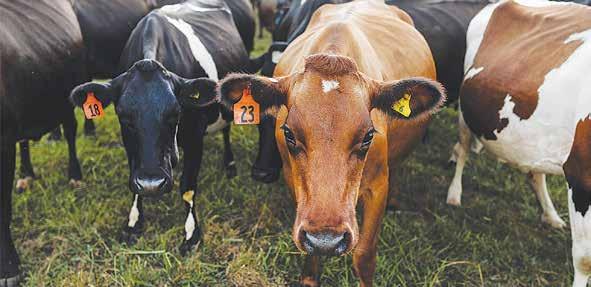
Biosecurity and Agriculture Minister Damien
“I also want to thank the broader sector who’ve stepped up their animal tracing efforts, allowing us to move the programme on to a new surveillance phase,” he says.
The last known infected property in MidCanterbury has been destocked and declared disease-free, taking NZ to zero confirmed infections of M. bovis.
O’Connor says the last known infected property in Mid-Canterbury has been destocked and declared disease-free, taking NZ to zero confirmed infections.
He says while there were brief periods in the past when there no infections there was still possible cases being investigated.
“This is the first time we’ve had no cases and no investigations, but it will take five more years to really confirm the absence of M. bovis in our herds,” he told Dairy News
It’s taken five years to get to this point and O’Connor says it’s the result of hard work, sacrifice, and collaboration between Ministry for Primary Industries (MPI), DairyNZ and Beef+Lamb NZ. O’Connor also acknowledges the hardship which affected farmers and families have felt during this time.
He says no one else in the world had done an eradication programme so the team running it had to constantly adjust, improve, adapt and learn as they went along.
O’Connor says they had to develop new tracing systems, which led to the improvement of NAIT and overall it took the efforts of hundreds of people to achieve the outcome we have now.
During the five-year eradication programme almost 184,000 cattle have been culled, 280 farms depopulated and nearly 3000 farms subject to movement controls. The Government also paid out $247.6 million in compensation to affected farmers.
O’Connor says the overall cost of the eradication programme was in the order of $650m and was funded jointly by the industry bodies and government. “But the advice I had, and the observations we saw in NZ, the effect on mastitis, lameness, abortion and the requirement to wind back the intensity of our farm systems would have cost billions of dollars in lost production and changed farm systems if we had to farm with bovis,” he says.
O’Connor says as NZ becomes clear of active M. bovis infection and work centres on background surveillance, the time is right to transition to a new model to continue to build our farming sector’s resilience and strengthen the biosecurity system.
But he says as part of the surveillance programme there will be ongoing milk sampling, probably twice a year when cows are more stressed and are likely to shed M. bovis cells into the milk, so we can detect its presence.
He says there will also be ongoing testing at the freezing works for the national beef herd.
• Ensure all calves are fitted with a NAIT tag before they reach 180 days of age.
• Register any fitted NAIT tags within 7 days of tagging.
• All calves must be tagged and registered before their first movement. So, if you are sending them off your location, make sure you meet your NAIT obligations.
• Calves must be NAIT tagged correctly.
For more information go to OSPRI.co.nz or 0800 842 463
“This is the first time we’ve had no cases and no investigations, but it will take five more years to really confirm the absence of M. bovis in our herds.”
A WARNING for some people in the dairy industry to expect more pain before things come right by the end of the year.
Rabobank’s agricultural analyst Emma Higgins told Dairy News that overall on-farm costs have risen by 13% while farmgate returns have dropped about 11%.
She says this is very painful for some farmers who are going through a significant period of adjustment.
“If you look at the year-on-year change, we are seeing a lot of the costs manifest in things like dairy shed expenses, which are up by 11%; fertiliser the same. But what is really driving that is interest rates, which are up 50% from this time last year and of course insurance premiums are
up by just under 10%,” she says.
But Higgins says the pain is not spread evenly across the sector, based on the current prediction of an $8/kgMS farmgate milk price.
She says those farmers who have a lower cost
structure have a competitive advantage, as do farmers who have lower farm expenses and higher debt. She adds that those with low debt and high expenses are also faring okay. “But there is a portion of farmers with high costs and who are highly


leveraged that are feeling the pressure,” she says. What’s driving this globally, she says, is that right now there is a bit more milk and a bit less demand. She says, in the second quarter of the year, milk production
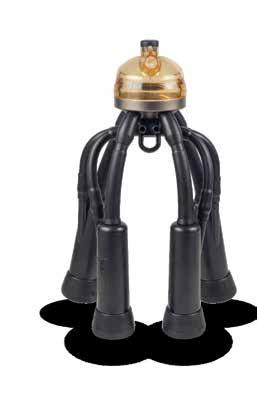
in the northern hemisphere rose slightly, while at the same time China took a step back in their buying activity. But the good news is that in the next few months milk production globally will slow down with growth
EMMA HIGGINS says while the present situation is serious for many dairy farmers, in a wider context it is probably not as bad as the downturn in the industry in 2015/16 which saw farm budgets tightened and a complete reset of the industry.
She says on that occasion the farmgate milk price fell by as much as 55% and there were ongoing challenges going into the 2016/17 season. She says the situation now is quite different to what it was then.
“We are not at that downturn era. There are more options for farmers now to cope with the volatility, such as Fonterra’s fixed milk price scheme and other options provided by third parties.”

Meantime, farmer confidence remains low and at the back of many farmers’ minds is what might happen in the October election. Higgins says, while the election and what an incoming government may or no do is a conversation topic for farmers, top of their agenda remains rising costs. For dairy farmers, however, their focus right now is on calving and only when that’s over will they start thinking about the other issues.
“I believe there is a little bit more darkness before the dawn starts to emerge and in the coming weeks are still likely to see some of that pressure emerge in the GDT. We think that when China works through its oversupply and inventories towards the end of the year and into the new year, we will likely see more price supportive activity coming through from China,” she says.


expected to be in the order of 0.5%.
“While kiwi farmers are feeling the pain, so are farmers elsewhere, especially in the US, and we are starting to hear that margin pressure come through in parts of Europe as well,” she says.
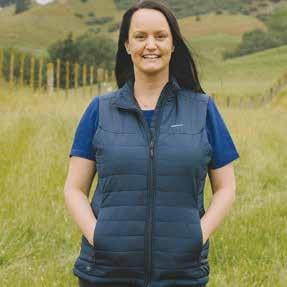
This is likely to play out in the next six or so months. At the same time, milk production in NZ is expected to only increase marginally. She says there are unknowns
at home, such as the weather and what impact the wretched season for maize crops will have.
What happens in China will also have an impact and Higgins says while milk production there is still growing, signs are that this may be slowing and that cost pressures are starting to impact on some of the larger corporate farms. She says the farmgate milk price there is also dropping.
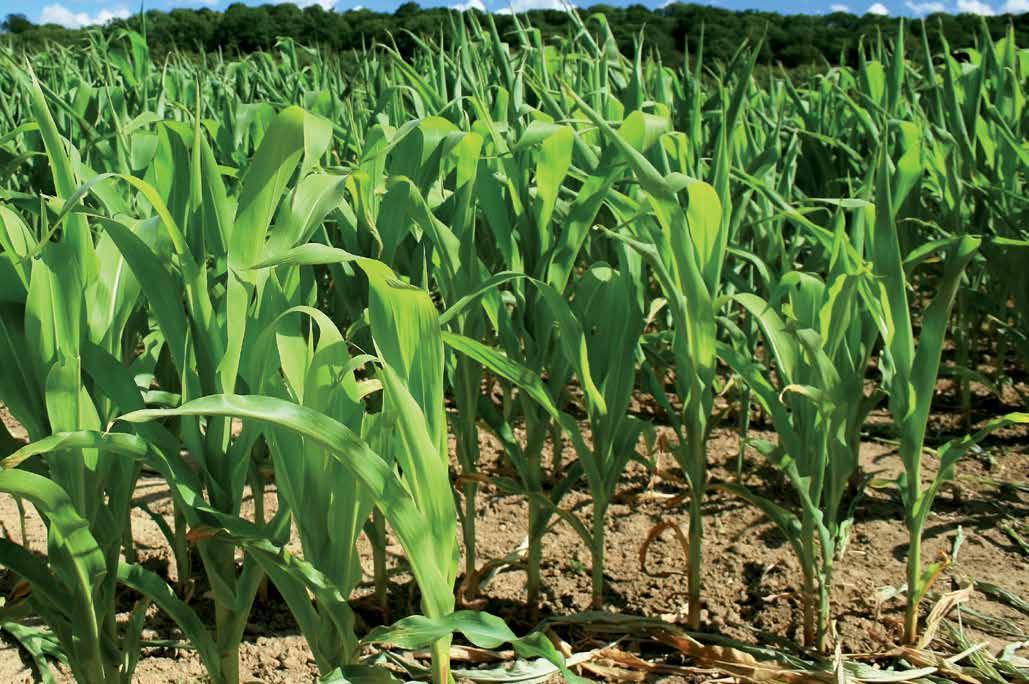 JESSICA
JESSICA
RECENTLY RELEASED
data from the Real Estate Institute of New Zealand (REINZ) shows that while the number of farm sales is low, the market remains strong.
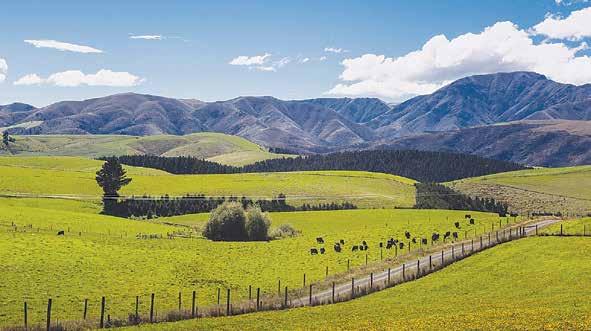
The data shows 1131 farms were sold in the year to June 2023, with 571 less than were sold in the year June 2022.

There were 37.5% fewer dairy farms sold, 13.5% fewer dairy support farms sold, 37.4% fewer finishing farms sold, and 22.3% fewer grazing farms sold for that period.
For the three months ended June 2023, the median sales price per hectare for dairy farms was $38,160 compared to $37,010 for the three months ended June 2022.
The median price per
hectare for dairy farms has increased 3.1% over the past 12 months.
On a price per kilo of milk solids basis, the median sales price was
$36.67 per kg of milk solids for the three months ended June 2023, compared to $36.95 per kg of milk solids for the three months ended May 2023 (-0.8%), and $35.94 per kg of milk solids for the three months ended June 2022 (+2%).
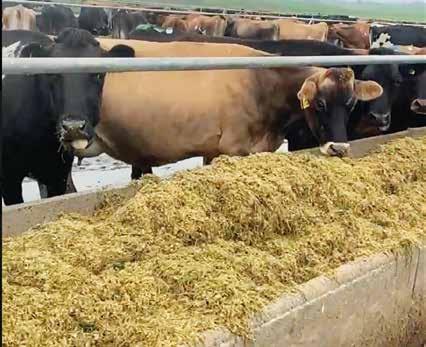
Shane O’Brien, rural spokesman at REINZ, says the sales figures continue the steady trend that has evolved over much of 2023.
He says there has been a noticeable decrease in the volume of sales, but the median sales price
has remained relatively consistent, with only a 3.7% drop on the previous 12-month period.
“The drop in the number of sales of dairy support land is a reflection on the time of year and possibly, more importantly, the decrease
in farm margins from lower milk payout, higher farm expenses and of course interest rate rises,” says O’Brien.
“Dairy farmers are focused on calving coming up and as such they are not making land purchases.”
O’Brien says the looming general election is also at the forefront of people’s minds with general uncertainty over government policies directed at farming still being crystalised.
“In over 30 years in the rural real estate profession, I have never seen the election have such a pronounced impact on people’s mindsets and decision-making,” he says.
“It is important to note however amongst this negative sentiment that the market is still fundamentally strong as evidenced by the median sale prices showing little variation over the preceding 12 months,” he says.
“This tells us buyers are still prepared to pay good money for the right property that meets all their requirements.”
MARSHALL jessica@ruralnews.co.nz
“The drop in the number of sales of dairy support land is a reflection on the time of year and possibly, more importantly, the decrease in farm margins from lower milk payout, higher farm expenses and of course interest rate rises.”
SOUTHLAND FARMERS aren’t surprised by research showing that a new national freshwater policy opposes their perception of a good farmer and good farming practices.
The National Policy Statement for Freshwater Management was implemented in September 2020 and received a negative reaction from the farming community as it did not suit the diversity of all farms across different parts of the country.
It was deemed especially unworkable in colder parts of the country and on topographi
cally diverse sheep and beef farms.
Lead author Professor Sara Walton, University of Otago department of management, says this led researchers to interview nine farmers from around Otago in late 2021 and early 2022 about how they saw their role in relation to shifting societal expectations around environmental goals in farming.
Researchers aimed to explore the conflicts between being a good farmer and complying with the policy, and the potential unintended consequences of the policy on rural communities.
“Farmers mentioned factors such as under
standing their farm environment, conservative management of resources and giving back to the communities in their definition of good farmers,”
Walton says.
“They also noted tensions between the impacts of the new freshwater regulations on farm practices and their identity as a good farmer.”
Southland Federated
Since 1993

Oct 22, 2023
6 Days
Stay in sunny Nelson & Blenheim. Enjoy a Queen Charlotte Sound cruise, lunch & wine taste at Seifried winery, a Greenshell Mussel Cruise. Visit Motueka, Kaiteriteri, Abel Tasman National Park and Pupu Springs. Train to Omaka Aviation Centre.

Forgotten Highway & Taranaki
Nov 7, 2023 + Feb 13, 2024
6 Days
Visit Hobbiton, travel 40km by Rail Cart into the Forgotten World - 10 hand dug tunnels and over 25 bridges. New Plymouth sightseeing tour, cruise aboard Paddle Steamer Waimarie, then Northern Explorer train back to Auckland.

Farmers winter grazing spokesperson and junior vice president, Jason Herrick, says the research findings don’t surprise him.
Herrick told Dairy News that it shows in the change in approach to wintering with a massive shift to grazing pasture and baleage over conventional winter crops.


He says the only thing
- DairyNZ Board of Directors


- DairyNZ Directors Remuneration Invitation for 2023 candidate nominations – three positions available.
In October, elections will take place for:
• Two farmer-elected directors for the Board of DairyNZ Incorporated.
• One farmer-elected member for the DairyNZ Directors’ Remuneration Committee.
Current levy-paying dairy farmers are invited to nominate candidates to fill these three positions. All farmers paying a levy on milksolids to DairyNZ are eligible to stand for election. An information pack outlining desired criteria and nomination requirements for the position can be obtained from the Returning Officer.
Nominations must be received by the Returning Officer by 12 noon on Friday, 25 August 2023.
Elections
If more than the required nominations are received, elections will be carried out by postal voting using the STV (single transferable vote) voting method. Votes will be weighted by annual milksolids production. Voting credentials will be posted to all registered DairyNZ levy payers on 11 September 2023, with voting closing at 12 noon on Tuesday, 10 October 2023.
The DairyNZ Annual General Meeting will be held on Wednesday, 11 October 2023. Election results will be announced at the meeting.
Bonded for Your Protection
Door to Door Service in Auckland Metro Area
For further details contact the Returning Officer
Anthony Morton Returning Officer – DairyNZ Incorporated 0800 666 935 ro@electionz.com
“these unworkable rules” do is punish the good farmers doing a great job out there.
“The rules and blanket implementation of freshwater farm plans are only doing the same and a lot of farmers that are doing awesome things are now looking at getting out of farming because of the amount of regulation and ridiculous costs attached, that has no benefit to the environment around us.
“In my opinion it’s almost what central government and the bureaucrats want, as it replaces the genuine family farmer with corporate organisations. Corporates are easier to control and conform.”
The new regulations include mandatory fencing and destocking of all freshwater bodies, restric-
tions on the location and duration of winter forage crops, and caps on nitrogenous fertiliser use.
The University of Otago research results, published in Agriculture and Human Values, show Otago farmers dislike the blanket rules that apply to all farms and would prefer a more targeted approach with relevant farmers in problem areas.
“The one-size-fits-all nature of the policy has the potential to create counterproductive outcomes to the founding concept of Te Mana o Te Wai, which recognises the importance of freshwater health,” Walton says.
Co-author, Associate Professor Janice Lord of the Department of Botany, says there is discontent around the regulations and a perceived
lack of appreciation by policy makers of the challenges of farming in some parts of the country.
“The new rules have a real chance of producing some negative results by effectively regulating farmers into a corner and not taking localised factors into account,” she says.
This could include:
• conversion of previously grazed grassland-wetland systems to forestry,
• the possible draining of wetlands before they are classed as significant,
• the potential for weeds to overtake newly fenced off waterways,
• intensification of winter cropping and transportation of animals due to land not meeting unrealistic and impractical constraints,
• increased mental health issues as farmers struggle to meet impractical regulatory standards.
Walton says being a good farmer was an important part of farmers’ identity and had been for many years.
The concept has moved away from being purely economic and instead conveys a set of shared social norms and understandings.
“Complying with the changing regulations was found to be a tension in their desire to remain being seen as a good farmer.”
FONTERRA IS aiming to make all its Australian dairy product packaging either reusable, recyclable or compostable by 2025.
The co-operative has 26 sustainable packaging projects underway in Australia and has invested significantly in this area. As well as creating greater opportunities for recycling, Fonterra Australia is also focused on ways to make packaging more sustainable.

This includes removing the cardboard sleeve from its Mainland On The Go Lunch snacking range, which has reduced the need for 47 tonnes of paperboard per annum.
Fonterra Australia’s sustainability packaging manager, Jenny Phillips says the co-op has set itself a significant challenge in the sustainable packaging space.

“And, we are making
good progress on our goal,” says Phillips.
“We have also changed to a recyclable PET tray and increased the shipping efficiency of the product to reduce corrugated carton board by another 10 tonnes
per annum. All up, this has resulted in significant financial savings for the business, as well as demonstrable environmental improvements.
It’s a win-win,” she says.
Fonterra Australia is committed to supporting
a new path for soft plastic packaging and is a foundation supporter of the National Plastics Recycling Scheme (NPRS).

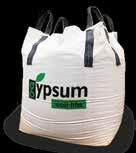
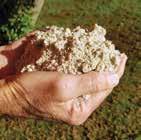
The NPRS soft plastics project is being developed by Australia’s food and grocery manufactur-

ing industry, with funding support from the federal government.
The aim is to enable people to recycle soft plastics at home and create a new advanced recycling industry in Australia that can turn used soft plastics back into new food-grade packaging.
Philips says there are strong benefits in using plastic packaging, as it plays an important role in keeping food safe and reducing food waste, which also has a considerable environmental impact.
“However, the move to more sustainable packaging is an important step in creating a circular economy where packaging can be recovered, reused, recycled and reprocessed back into a food-grade solution,” she says.
FONTERRA AUSTRALIA is lifting its decarbonisation ambition with a new Scope 1 and 2 emissions reduction target.
After previously, committing to a 30% carbon emission reduction by 2030, last month that target was increased to 50% carbon emission reduction by 2030.
Speaking of the commitment, Jack Holden, general manager sustainability, Fonterra Global Markets, says that Fonterra Australia had made great progress towards the 30% reduction target previously set, and it was a good time to lift its ambition.
“In Australia, Fonterra reached a 30% reduction in carbon emissions in FY22, and we are on track to hold this performance for FY23. We have great confidence in our ability to reduce our carbon emissions further and have increased our target to a 50% reduction by 2030,” Holden says.
Fonterra Australia remains committed to making a positive, sustainable difference to reducing our impact on climate change, he adds.
“We know we have more to do to decarbonise our business and delivering on our targets. This will make us a stronger business and it is consistent with what customers are asking of us,” Holden says.
Fonterra is using the Science Based Target Initiative (SBTI) as the framework to set its emission reduction targets. Fonterra Australia is also supportive of the Australian Dairy Industry Framework ’s overall target of 30% intensity reduction by 2030 across the whole supply chain of farms and factories.
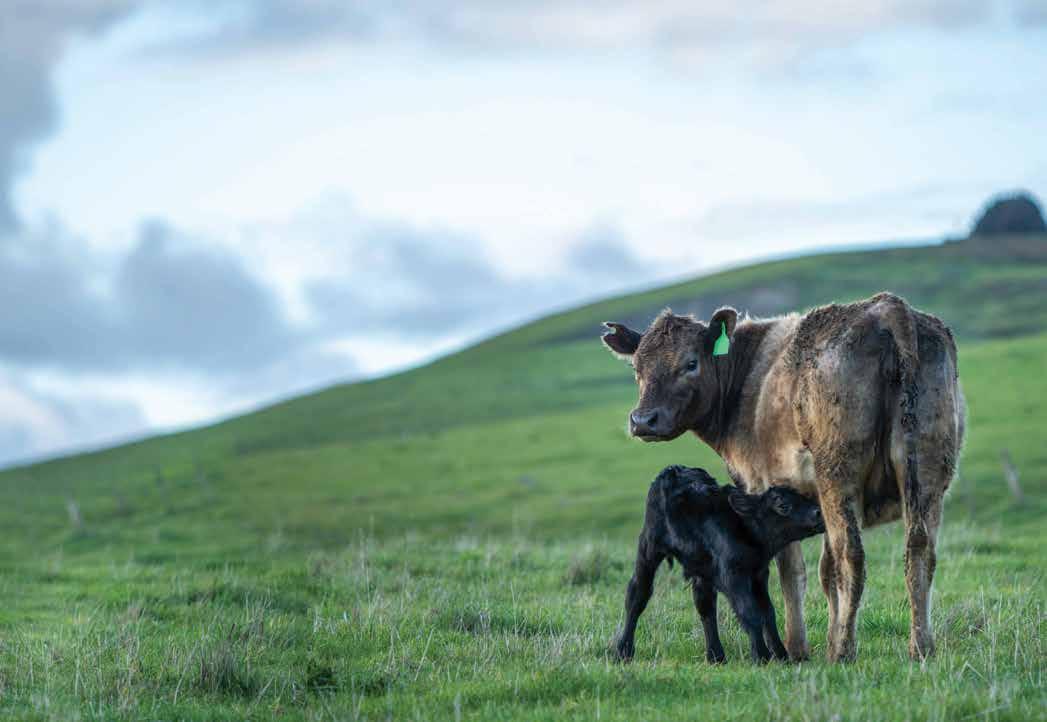
WEST COAST milk pro-
cessor Westland Milk Products says its suppliers have helped the company move up global independent rankings for corporate social responsibility.
Westland general manager environment and milk supply Mark Lockington says the involvement of Westland suppliers in signing on to the company’s new Code of Conduct was one of the major factors behind the company being awarded a Gold ranking for its sustainability credentials.
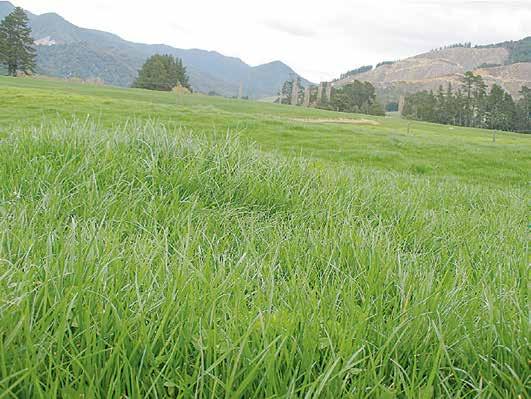

In July, Westland was advised it was now among the top 5% of global companies ranked by sustainability auditors EcoVadis and had been
given the Gold award.
The EcoVadis Gold Award demonstrates Westland is actively promoting responsible environmental practices, employee engagement, and ethical codes of conduct.
“The new policies and procedures put in place with our supply chain, such as our Code of Conduct, were singled out by EcoVadis as a factor in our improved ranking,” Lockington says.
“We’re grateful for the response from our suppliers in signing up to the Code and the care and time they took to participate.
“The award levels continue to evolve in line with market expectations so we will need to
continue to invest and improve in order to maintain our Gold status.”
Westland’s Code of Conduct sets out the
company’s approach to ethical business conduct; health, safety, and wellbeing; environment; labour and human rights and
compliance with law.
As corporate social responsibility continues to increase in importance globally, Westland chief
executive Richard Wyeth says the Gold award reduces the compliance expectations of new customers.
“Being able to demonstrate our social responsibility credentials is vital in global business and this ranking supports the work done not only across our team, but across our whole supply chain,” Wyeth says.
“It shows we mean business when it comes to operating to the highest ethical standards and can demonstrate our commitment to corporate social responsibility, trust and integrity.’’
Westland first joined the EcoVadis ranking system in 2018 as a supply chain requirement of some major international customers and has ranked at Silver for the past five years.
@dairy_news
facebook.com/dairynews
22 August 2023
9 August 2023
15 August 2023
report is for dairy farmers considering replacement gear for the coming resowing and crop planting. Ground preparation
planting gear, seed and fertiliser, and aspects like contracting and getting the right advice will all be covered.
ONE OF the world’s largest dairy co-operatives is reporting a slump in halfyear profits on the back of declining commodity prices and lower sales volumes.
For the first six months of 2023, Royal FrieslandCampina, owned by 15,000 farmers in Netherlands, Belgium and Germany, recorded an operating profit of 47 million Euros, an 86% drop compared to the same period last year. Net profit decreased by 94.2% in comparison to the first half of 2022 to 8 million Euros.
The co-operative says the first half of 2023 was challenging.
The milk price that FrieslandCampina paid to its member dairy farmers was high relative to the sharply declined market prices for commodity dairy products, particularly for cheese and butter.
Expensive product stocks had to be sold in a declining dairy market. Furthermore, volumes declined as markets suffered due to a loss of purchasing power and a shift in consumer spending towards private label.
The co-op says its Food & Beverage and Trading business groups were hit the hardest by this. The Ingredients and Specialised Nutrition business groups on the other hand had a good start of the year, but this could not compensate the loss in profitability at the other two business groups.
As a result of the above developments, net profit declined sharply in the first half of the year.
In the first half of 2023, FrieslandCampina’s revenue increased by 4.6% to 6.9 billion Euros compared to 6.6 billion Euros in the same period last year, primarily driven by earlier implemented price increases.
However, in the first half of 2023, commod-
ity dairy prices dropped faster than the milk price paid by FrieslandCampina to its member dairy farmers based on its milk price system. On top of this, stocks produced at a higher cost price had to be sold at a lower market value, which had an adverse effect on profitability.
FrieslandCampina chief executive Jan Derck van Karnebeek says the results for the first half of the year are not at the level one can expect from the co-op.
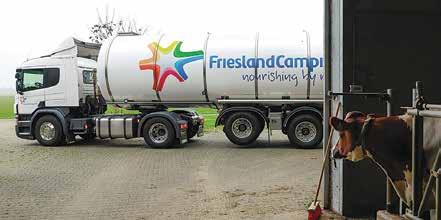
“Improving our profitability in 2023 and beyond is therefore our top priority,” he says.
“That is why we have implemented short-term cost savings without jeopardising our long-term growth prospects. In addition, we are working on refining our strategy, known as ‘Expedition 2030’, to structurally improve the profitability of the company, including the lower-margin product and customer segments.
“We look at both the revenue and the cost side of the company for this. Making FrieslandCampina more sustainable, for example by implementing our climate plan, will also be an important focus point within Expedition 2030.”
Despite the challenging circumstances, FrieslandCampina says it is investing in future growth and sustainability.
In the Netherlands, FrieslandCampina Ingredients opened a new, sustainable production facility for lactoferrin, an important, high-quality protein for infant and adult nutrition.
A large-scale pilot with a methane-reducing feed additive, in which almost 160 dairy farms with a total of almost 20,000 cows participated, was successfully completed.
This is promising news relating to the future reduction of greenhouse gas emissions at dairy farms, it says.
The co-op is expecting a slightly better second half this year.
“For the second half of 2023, the milk price paid to the member dairy farmers and commodity dairy prices are expected to converge,” it says.
“As a result, losses seen in the first half of 2023 due to the difference between milk price paid to member dairy farmers and the lower
market value of stocks at the time of sale are expected to have a lower
impact in the second half of the year.”
expected to remain under pressure in all markets due to inflation. TRX420FA2 $15,625 NOW ONLY EX GST



420cc | AUTO POWER STEER SOLID REAR AXLE | 385KG TOWING CAPACITY FRONT AND REAR CARRY RACKS
SAVE $1000* TRX520FM6 520cc | MANUAL | POWER STEER INDEPENDENT REAR SUSPENSION 600KG TOWING CAPACITY FRONT AND REAR CARRY RACKS $18,375 NOW ONLY EX GST
SAVE $300 XR190 FUEL-INJECTED 184CC ENGINE HEAVY DUTY CARRY RACKS DUAL SIDE STANDS | POWERFUL HEADLIGHT $5,334 NOW ONLY EX GST
SAVE $1000* *Offer valid from 01/08/23 to 31/08/23. Price shown is the discounted price and excludes GST. Saving amount shown includes GST. Available while stocks last at participating Honda dealers only. For full terms and conditions go to hondamotorbikes.co.nz. Offer only available on payment with Farmlands Card. Farmlands terms and conditions apply.
SAVE $650* CRF250F 250CC 4 VALVE ENGINE | ELECTRIC START FRONT & REAR DISC BRAKES | INTEGRATED HEADLIGHT | LIGHT TWIN-SPAR FRAME $7,909 NOW ONLY EX GST



SAVE $1000* TRX520FA6 520cc | AUTO POWER STEER INDEPENDENT REAR SUSPENSION 600KG TOWING CAPACITY FRONT AND REAR CARRY RACKS $18,775 NOW ONLY EX GST XR150 ECONOMICAL 150CC ENGINE | ELECTRIC START 12 LITRE FUEL TANK | POWERFUL HEADLIGHT RIDER FRIENDLY ERGONOMICS $3,991 NOW ONLY EX GST
KEEP MORE IN YOUR BACK POCKET WITH YOUR FARMLANDS CARD. Farmlands 187 x 280 Aug 23.indd 1 1/08/23 10:13 AM
KIWI GUTS and determination have shown the world that the impossible is possible.
Last week the Government announced that New Zealand has no farms infected with the cattle disease Mycoplasma bovis (M.bovis) as the joint government and primary sector eradication effort moves into its next phase.

The milestone means New Zealand moves closer to a world-first eradication of the disease. The last known infected property in Mid-Canterbury has been destocked and declared disease-free, taking New Zealand to zero confirmed infections.
MILKING IT isn’t a climate change denier, although this piece will no doubt bring that claim from the usual climate crusaders. But surely we should deal in facts when assessing the impact of, and our response to, climate change, shouldn’t we?
So here’s a fact: over the last two decades, NASA satellites have recorded a drop in the incidence of wildfires around the world. In the early 2000s, just over 3% of the world’s land caught fire. This has trended down since then to 2.2% in 2022. You’ll struggle to find that reported in the media though. It doesn’t fit the “world is burning” narrative, or the UN’s overegged “era of global boiling”.
Overheated headlines won’t help us make sensible decisions about climate resilience.
UK CONTRACTORS are coming to the aid of their New Zealand counterparts.
The Scottish Farmer reports that UK contractors have launched a partnership with their New Zealand counterparts to help solve the sector’s labour shortages in both countries.
The National Association of Agricultural Contractors (NAAC) and Rural Contractors New Zealand Inc (RCNZ) are working together to assist their members in exchanging labour. The UK welcomes NZ workers through the Youth Mobility Scheme, if aged 18 to 35, to gain a working visa for up to 24 months. There is also a skilled worker option, sponsored by a UK employer.
And with the season in NZ just around the corner, there is an opportunity for UK workers to get a visa and start in October.
NAAC CEO Jill Hewitt says this is a fantastic opportunity for members to gain experience, see the world and keep busy year-round, also taking the pressure off contracting members retaining staff through the winter.
Head Office: Lower Ground Floor, 29 Northcroft St, Takapuna, Auckland 0622 Phone 09-307 0399.
ANIMAL RIGHTS group SAFE
For Animals is claiming that the days of winter grazing and colony cages should be numbered.
It’s jumping for joy following the announcement that the Animal Welfare Act 1999 is to be reviewed by the Government.
The parliamentary Regulations Review Committee has told the Government to conduct a prompt review of the process for developing secondary legislation under the act, and whether all secondary legislation, particularly codes of welfare, are consistent with the intentions of the act.
A review of the act is not something too many people would oppose.
But banning winter grazing? We say wishful thinking on the part of SAFE.
FARMER LOBBY Groundswell is mobilising farmers against the requirement to have freshwater farm plan.
Groundswell NZ predicts the Government’s new Freshwater Farm Plans will cost $10,000 to implement on each farm, and says they are ‘’just another unworkable regulation bought in by this Government”.
It has started holding farmer meetings. The lobby wants freshwater plans to be addressed by catchment groups rather than individual farmers
A new requirement for farms over a certain size to have a freshwater farm plan has come into effect from August 1 in parts of the Waikato and Southland, with other regions to follow over the next two years.
In the Waikato region, the requirement is being phased in by catchment, starting with the Waipā to align as best as possible with the pending implementation of Proposed Plan Change 1.
Once the regulations are activated in their catchment, farm operators will have 18 months to develop and submit their first freshwater farm plan for certification.
Publisher: Brian Hight Ph 09-307 0399
General Manager: Adam Fricker Ph 021-842 226
Editor: Sudesh Kissun Ph 021-963 177
Machinery Editor: Mark Daniel Ph 021-906 723 markd@ruralnews.co.nz
Reporters: Peter Burke Ph 021-224 2184 peterb@ruralnews.co.nz Subscriptions
The decision by Agriculture Minister Damien O’Connor to go with the idea to completely eradicate M. bovis has paid off with the news that for the first time in five years there are no cases of bovis in the country and there are no investigations. This outcome clearly vindicates the decision to ignore the advice of people who said such a task was impossible and that no other country in the world could do it.
NZ might be a small nation, but it has a proud history in all aspects of life of punching above its weight and achieving world firsts. This is another one and one that will make NZ famous in the world of agriculture.
O’Connor is rightly cautious in saying that it will take a few more years to be completely certain that this disease is eradicated.
But if there is an outbreak again of M. bovis or, heaven forbid, foot and mouth disease, then NZ has better systems in place to deal with it.
Remember when bovis was first discovered, the NAIT tracing system and in particular its use was far from reliable.
That has improved but there is still room for refinement and if there is one thing that farmers cannot be lax about, it’s biosecurity. Our disease-free status is the single most important pillar of our primary sector.
It was a great team effort and one that will long be remembered.
AUCKLAND SALES REPRESENTATIVE: Stephen Pollard Ph 021-963 166 stephenp@ruralnews.co.nz
WAIKATO SALES REPRESENTATIVE: Lisa Wise Ph 027-369 9218 lisaw@ruralnews.co.nz
WELLINGTON SALES REPRESENTATIVE: Ron Mackay Ph 021-453 914 ronm@ruralnews.co.nz
SOUTH ISLAND SALES REPRESENTATIVE: Kaye Sutherland Ph 021-221 1994 kayes@ruralnews.co.nz
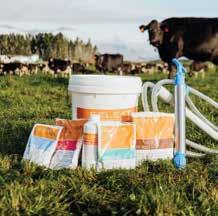
Agriculture and Trade Minister Damien O’Connor recently addressed the NZ-China Business Summit in Auckland. He spoke about the importance of the Chinese market to NZ exporters but also the need to diversity our export footprint. Here’s part of his speech:

CHINA IS an important market for us and will continue to be so.
However, our Government understands that our exporters need diverse options and opportunities when it comes to trade. In line with the Government’s Trade Recovery Strategy, we are therefore continuing to promote diversification and resilience, by pursuing new Free Trade Agreements and modernising existing ones that benefit New Zealand and New Zealand businesses.
Our Government has successfully concluded and modernised a number of significant Free Trade Agreements in recent years, including:
■ The Regional Comprehensive Economic Partnership;
■ The Comprehensive and Progressive Agreement for Trans-Pacific Partnership;
■ A Bilateral Free Trade Agreement with the United Kingdom;
■ The recent signing of a bilateral Free Trade Agreement with the European Union;
■ And the ASEAN-Australia-New Zealand upgrade.
Taken together our FTAs now cover around 74% of our exports – a phenomenal achievement.
With some of these key FTA building blocks in place, we are also focusing on existing FTA mechanisms to ensure we fully leverage the benefits from our FTA network for all New Zealanders. For example, this year we are chairing the Comprehensive and Progressive Agreement for Trans-Pacific Partnership (CPTPP), including hosting the CPTPP Trade Ministers in Auckland over the last couple of days where we all formally welcomed the United Kingdom’s accession to CPTPP.
Our hosting year provides an opportunity to demonstrate leadership in areas of impor-
tance to New Zealand, by advancing the implementation and expansion of the agreement, highlighting the importance of inclusive and sustainable trade, including Indigenous trade and economic empowerment, and ensuring that the agreement remains the gold standard for our region and delivers for all our people.
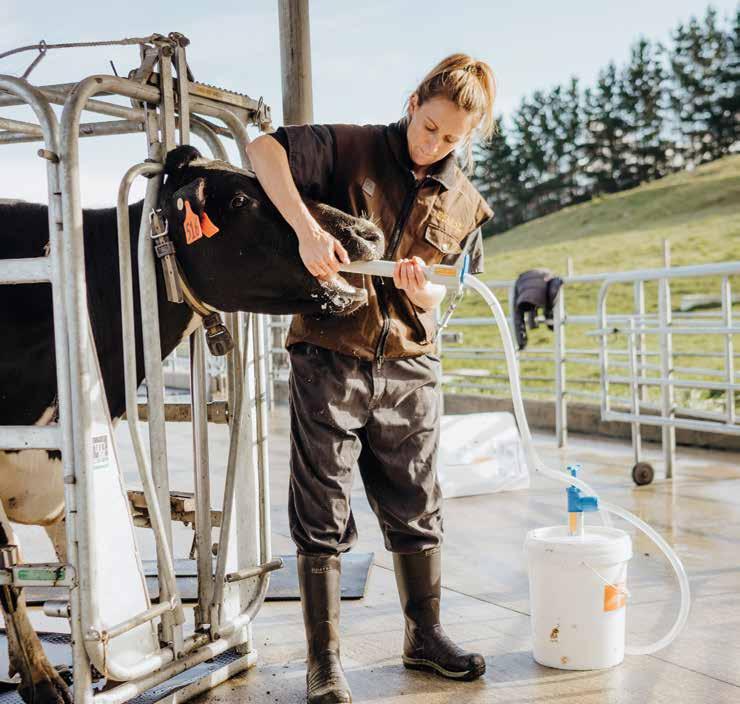
The UK’s accession to CPTPP and the growing number of economies that want to join CPTPP, demonstrate the value and appeal of the agreement. We continue to welcome applications from those economies that can meet the high standards of the agreement and other requirements as outlined by CPTPP Ministers.
Other regional architecture has opened up pathways across the region, such as the recently upgraded ASEAN, Australia-New Zealand FTA. This agreement now includes more modern trade facilitative rules, including streamlined customs procedures and stronger e-commerce rules.
We are also working on evolving regional architecture, for example, New Zealand is actively participating in the IndoPacific Economic Framework (IPEF), with the United States and 12 other countries. This is an important way to bring the United States into the regional trade and economic architecture, following its withdrawal from TPP.
Negotiations on a ‘first-of-its-kind’ Supply Chain Agreement, one of the four distinct pillars of IPEF, were concluded while I was in Detroit in late May. Intensive work continues on the other three pillars. We are also looking ahead to how we can band together with other likeminded economies to tackle trade issues that have the potential to drive economic growth
and innovation into our future.
In this context, New Zealand has been proud to establish the Digital Economy Partnership Agreement (DEPA) with Singapore and Chile. The DEPA aims to cover the breadth of the digital economy. It is designed to function as a path-
finder agreement that will help shape new norms in digital trade over time.
As part of this vision, the DEPA is an ‘open plurilateral’ agreement, meaning it is open to other WTO members who can meet its high quality standards.
We are pleased to have recently concluded accession negotiations with
Korea, and have ongoing discussions with other economies interested in joining, including China. Looking out beyond the region, New Zealand is continuing to invest heavily in multilateral institutions, such as the WTO and in normal building institutions like APEC and the OECD.
APPLICATIONS FOR the 2024 intake of the Rabobank New Zealand graduate programme are now open.
The 18 month-long programme offers university graduates with an interest in agri banking the opportunity to begin their careers with the global specialist agribusiness bank.
Up to six graduates from around the country will be selected for the programme, where they will gain experience and be given career development support, within the bank’s country banking division.
Applications for the programme close on Friday August 18 and the new intake of graduates will begin the programme early next year.
Rabobank New Zealand general manager for country banking Bruce Weir says the bank officially launched its Graduate Programme in 2021 following a successful pilot programme which began in 2019.

“As a food and agri banking specialist, we are well aware of the need to attract more talented young people into roles across the sector, and our graduate programme is
one of the initiatives we are undertaking to help achieve this objective,” he says.

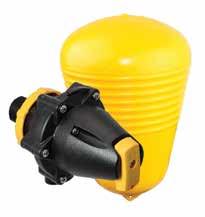
“Our team is passionate about the agricul-
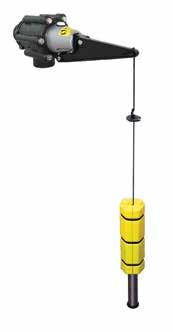

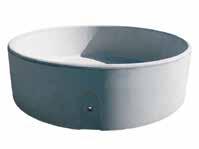
ONE OF the 2021 intake of graduates, Ashley Kowalewski, says the bank’s graduate programme had provided her with a great grounding for the role she has now moved into as an agribusiness analyst based in Hamilton.

“The way the programme is set up with the three six-month rotations allowed me to gain an insight into the differences in approaches and working styles between different managers and analysts and to tap into the wide range of skills and experience across the Rabobank staff network,” she said.
“I also really valued the strong focus on my own personal development, which included being encouraged to think about my goals, what skills I wanted
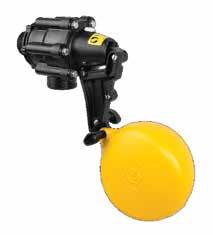
to learn and where I wanted my career to head.
“My time on the graduate programme enabled a smooth transition into the analyst role and the responsibilities that come with it. I was able to gain an understanding of some of the various aspects of banking and tasks within the analyst role without the pressure of being in a full-time role, and with the flexibility to get out of the office and on farm, as
tural industry and the rural communities where our clients live. And as part of the programme, graduates will gain valuable insights into how we
work alongside our clients to grow their business in a way that is sustainable for themselves, the environment, their farm and for our country.”
Weir says graduates on the programme will spend time with several different teams in several locations across the bank’s country banking division.
The programme is broken up into three sixmonth rotations which give participants an opportunity to spend time working as part of the country banking team in several of the bank’s
well as to attend various workshops and events.
“The networks I have developed have also given me a robust support network.”
Another programme participant, Tom Woelders – who joined Rabobank in February this year as part of the 2023 graduate intake –said he enjoyed his first five months with the bank which has seen him based in the Rabobank Masterton office.
“The grad programme has allowed
27 offices located across New Zealand.
They’ll also receive mentoring and take part in personal insight sessions as well as learning more about some of the bank’s other divisions –including products and deposits, risk, and compliance.
Weir says past and present graduate programme participants were making a significant contribution to the bank.
“Including pilot programme participants, we’ve now employed more than 30 graduates as part of the programme.
“These graduates have
me to grow as an individual whilst learning about different roles, responsibilities, and processes within the bank. Although it can be a lot to start off with, the grad programme creates opportunities and the time to learn,” he says.
“A few weeks after I started, I got the chance to attend an event in Sydney for all Rabobank employees across New Zealand and Australia. This was a fantastic opportunity to learn more about the bank and to meet other staff.
“I’ve also spent time at the bank’s New Zealand head office in Hamilton and was able to meet members of the New Zealand Leadership Team. I’ve really enjoyed meeting new people, building networks and developing relation-
been a great addition to the business, and I’ve been really impressed by their enthusiasm and desire to learn,” he said.


“The New Zealand Leadership team really enjoy interacting with the grads and find their fresh perspective on the bank, the industry, and the future hugely valuable.”
With strong demand expected for a place on the programme, interested recent graduates (or those eligible to graduate prior to February 2024) are urged to apply before August 18 at www. rabobank.co.nz/graduatecareers/
ships with staff across New Zealand and Australia.”
While based in different locations across the country, Woelders says the 2023 intake of graduates were a tight-knit bunch and maintained regular contact.
“We’ve had an in-person get together in Hamilton and we also have a weekly call to discuss our experiences and what we’re working on. It’s been really good to have the opportunity to regularly talk to others who are on the programme and new to the bank like me,” he said.
“I’ve just about completed my first rotation and I’m really looking forward to working with different teams and developing more skills across the next couple of rotations.”
the network’s conference in 2014 and a subsequent board role, she’s done it all.
IT SHOULD come as no surprise that Karen Forlong, the former chair of Dairy Women’s Network (DWN) who departed the board this year, is one of the organisation’s biggest advocates.
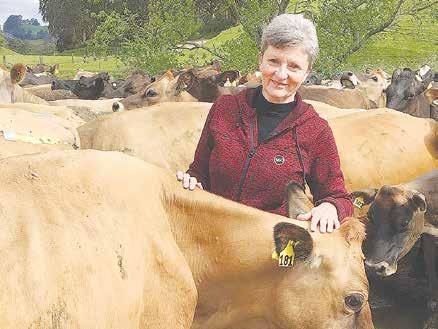
Forlong, in the middle of her 27th season at the Atiamuri dairy farm she owns with her husband Maurice, is onto her 40th calving season.
She joined DWN back in the early 2000s after her neighbour suggested she come along for a meeting. She ended up holding numerous roles within the organisation.
From being part of the conference committee in 2005 and 2012, to a role as the North Island Convenor Coordinator in head office to chairing
“I’m not an expert in anything,” she told Dairy News “But I’m good at bringing people together.”
In 2019, Forlong became DWN chair, taking over from Cathy Brown who she describes as “an inspiration”, like so many of the women the Network has given her the opportunity to spend time with.
“To me, being a chair, has an element of being good at process and procedure and growing to understand governance, but it’s more about being the conductor of a talented orchestra,” says Forlong, who also chairs Vetora Bay of Plenty, an incorporated society vet club.
“That’s what I’ve had the privilege of doing at
Forlong is full of praise for the DWN she’s been involved with for almost half her life, labelling it “an amazing organisation for women”.
She says it’s something she is fortunate to be a part of over the years. She has made
many close friends around the country.
Those years have seen a lot of changes for both the industry and for women.

“Much is still the same as far as who the women are, the traditional roles, but much is different too,” Forlong says.
“We still have some of the same historical challenges in terms of women not always being seen and recognised as 50% of a critical farming partnership,” she says. “I think there still exists an element of invisibility.
She says more women are farming in their own
right, and many women coming into farming businesses who bring professional backgrounds with them.
She says that comes with its own challenges in terms of an adjustment period for those women.
“For them, the challenges can present around the adjustment of going from being urbanbased, having a really great career, to finding themselves falling in love with a guy with a ute and moving 45 minutes out of town where it’s more difficult to carry on that career.”
She says that on top of those challenges, the industry itself has evolved.
“Dairy is far from hands-on farming now,” Forlong says, adding the industry has changed to include elements of human resources, health
and safety, environment, compliance, and more office-based work in general.
“The volatility of dairy requires you to really understand your business, to work on it while working in it. Hone your skills around what makes it tick, what makes it efficient, what makes it profitable… the whole nine yards.
“When I look at my time in the office, it’s gone from one or two days a month to at least two days a week.”
So, what role does an organisation like Dairy Women’s Network have to play in the lives of women on-farm?
First off, Forlong says it’s a huge provider of knowledge for many women in the industry.
“I will always be a huge advocate of Dairy Women’s Network.”


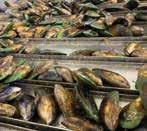

to help other farmers by sharing their planting knowledge.
Dave Swney and Alice Trevelyan see environmental work as part of their day-to-day farming.
The couple are in an equity partnership on a 124ha farm near Te Awamutu with Dave’s parents, Phil and Deb, milking 410 cross breed cows and producing 190,000 kgMS per season.
Over the years, they have planted over 4000 plants on their farm. Two years ago, they decided
In 2021, Alice, a former senior catchment management officer at Waikato Regional Council, launched The Native Dairy Farmer, a nursery to serve the community.
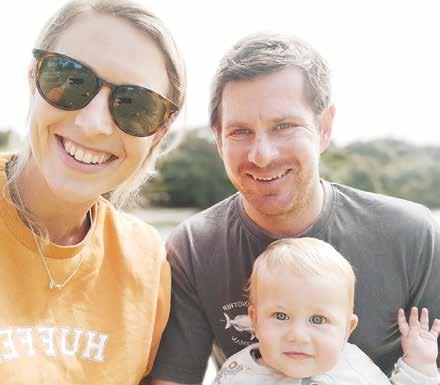
The family tennis court was converted into a nursery: over 45,000 plants have been sold over the last two seasons to farmers, schools, and lifestyle block owners.
Dave runs the farm while Alice manages the nursery.
Dave points out that they’re “still newbies”
NEW SEASON PREMIERE FRIDAY 11 @ 9.30PM

THIS SEASON OF RURAL DELIVERY IS FOCUSSED ON THE EXCITING NEW DIRECTIONS OUR NEW ZEALAND LOCAL FOOD AND FIBRE PRODUCTION SECTORS ARE TAKING.
WE MEET PEOPLE AND ORGANISATIONS ACROSS OUR PRIMARY SECTORS WHO ARE WORKING HARD TO PROTECT AND PRESERVE THE ENVIRONMENTS THEY OPERATE AND LIVE IN, FOR THE SAKE OF ALL NEW ZEALANDERS.
PREMIERES SUNDAY 27 @ 8.30PM
GRAB YOUR HELMET AND HEAD FOR THE TRAIL!
IT’S ALL ABOUT ADVENTURE, THE OUTDOORS, AND THE WORLD OF RESPONSIBLE RIDING - FROM SAND DUNES TO MOUNTAIN PEAKS, CANYON RIDES TO MUD PITS, DESTINATION POLARIS IS YOUR AUTHORITY FOR ALL-TERRAIN TRAVEL.

JOIN HOSTS, JARED CHRISTIE AND ALEXA SCORE EACH WEEK AS THEY UNCOVER THE WORLD’S TOP RIDING DESTINATIONS. PLUS, PROJECT ‘X’ TURNS AN EVERYDAY MACHINE INTO THE BIGGEST, BADDEST, UTV VEHICLES ON THE MARKET.

in the nursery business – this is their second growing season. But the couple love having diversification of their income and work on farm.
Dave says in her role at WRC, Alice developed her passion for natives, with a large part of her role focused on helping farmers undertake native planting projects.
“So we started The Native Dairy Farmer with the aim of sharing our day-to-day activities, both on farm and in the nursery,” Dave told Dairy News
“We wanted to show what happens on farm to produce the milk for your morning coffee, as well as show the awesome work that farmers are doing in the environmental space.”
He says the response from farmers, customers and their social media followers has been positive.
“We really enjoy meeting our customers and have been lucky to have been invited onto their farms to see their plantings.
“We aim to provide farmers with top quality, affordable plants.
“We want to see farmers planting projects thrive and aim to provide site specific advice including
THE DAIRY sector urgently needs 2000 to 2500 people on-farm.
DairyNZ lead advisor for people Jane Muir says DairyNZ is helping connect Kiwis with farm vacancies available nationwide through GoDairy.
“There are plenty of farm assistant roles available nationwide – a great way to start a dairy career,” says Muir.
“Dairy is a unique career, where no two days are the same. No prior experience is needed and any ages are welcome to join. You learn on the job and pick up a wide range of skills including milking, calf rearing and operating heavy machinery.”
Promotion and growth opportunities are available, with farm managers able to earn over $100,000. Many farms offer reasonably priced on-farm accommodation, which means no commute to work or daily travel costs, helping people save more for their future goals.
To get a career in dairy and apply for jobs, visit: godairy.co.nz/gonow
species selection, site preparation and site maintenance.”

This year, the couple were asked by friends to trial biodegradable paper pots, named Ellepots.
Dave says they are excited as this will reduce the amount of plastic associated with native planting.
“Some friends of ours who own nurseries in Taupo and Rotorua got together and formed a company called 4Regen Limited to purchase an Ellepot machine which was being used in part of a research programme at Scion.
“We feel lucky to have been asked if we wanted to trial the pots with them this year. We are really excited about the research behind the paper pots.
“Not only do they reduce the amount of plastic associated with native planting, the pots also enhance plant physiology.
“Ellepots are engineered to deliver healthier and faster root development, and also reduce the incidence of transplant shock.”
The feedback received from customers on Ellepots has been great.
Dave points out that it’s only their first season using the pots, so there
is lots of learning to be done.
“But we have received great feedback from our customers so far: the most common comment we get is how quickly they were able to complete their planting.
“No need to take the plant out of the pot - and no rubbish to pick up at the end!”
Dave and Alice employ two full time staff with a couple of relief milkers helping during busy periods.
With a 10-month old son and another baby on the way, Dave says work-life balance is really important to them.
But it is something they need to work on, he adds.
“We have recently switched our staff from a 12 and 2 roster to a 5 and 2, 6 and 1 roster which seems to be working well, however we haven’t quite managed to get ourselves into that roster yet.
“We are constantly talking about how we can do better in this space, whether that be through farm system changes or changes to the roster or both.”
He says dairying is a great career and as they show, sustainability and profitable dairying can go hand-in-hand.

CORRECT MINERAL supplementation will be crucial as wet weather and sodden soils increase the risk of cow lameness and mastitis this spring.
While NIWA’s seasonal outlook for July-September 2023 predicts near normal or below normal rainfall for the North Island, dairy farmers are advised to be proactive about managing the mineral status of their herds to maintain cow health.
This winter has seen unprecedented wet weather, and in many areas, soils are saturated, says GrainCorp Feeds technical feed partner Ken Winter.
“If this type of weather continues into the spring, it could lead to increased lameness and higher levels of mastitis.”
North Island farmers are starting spring calving, and the stage for success or mediocracy is being set by the simple choices and actions they make right now, says Winter.

“There is no instant fix for lameness, but making sure the mineral status of your herd is optimum, arming and improving the immune system, all comes from being proactive. A review done by scientists in Germany has shown that in particular, copper, zinc, selenium, and biotin are crucial in the keratinisation process, which ensures healthy hoof growth.”
It is also important to supplement cows with the correct amount of magnesium to help with the absorption and distribution of calcium. Research has shown that lame cows had significantly lower levels of magnesium in the hoof wall when compared to control cows with no lameness issues.
“A herd’s mineral status can not only help strengthen cow hooves and improve udder health, but also improve production. If you start early enough and keep their mineral status at an optimum level, you can also help avoid unnecessary losses in production and reduce health costs and animal losses.”
Winter says getting cows up to peak milk as high and as quickly as possible, while losing the least amount of body condition, is all about lifting the ceiling on potential production.
This starts with reducing cows’ negative energy balance at calving and being proactive. Getting cows to perform more efficiently can help water down costs and improve profitability.
“It’s all about the attention to detail every day and it starts now.”
Winter believes that with higher costs and the possibility of a lower payout, one of the biggest risks for dairy farmers is making poor decisions based on trying to reduce costs.
“Reducing spending in the wrong areas can ultimately cost you more in the long run,” he says.
“Having a plan with an expected outcome allows you to calculate backwards to see where and what you need to spend and in what areas you should invest to give you the best returns.”
A HEFTY court fine over a National Animal Identification and Tracing (NAIT) breach should send a strong message to all farmers, says Ministry for Primary Industries (MPI).

Rangitoto Dairies Ltd, Waikato, was fined $32,500 over its failure to notify NAIT that it was moving 910 cattle onto its farm. The NAIT scheme, which maintains a national database of cattle and deer movements, is a critical part of New Zealand’s ability to respond quickly to biosecurity threats.
Rangitoto Dairies, which operates a dairy and beef farm business at Te Kuiti, earlier pleaded guilty to one representative charge under the National Animal Identification and Tracing Act 2012. It was sentenced at the Te Kuiti District Court on July 25.
Inquiries by Ministry for Primary Industries NAIT officers found the company’s registered person in charge of animals (PICA) for the farm had failed to declare to NAIT that it received 910 cattle from 82 separate movements onfarm between 1 July and
18 October 2020. The company was responsible for the failure of its employee because it did not ensure its employee fully understood the obligations of a PICA and failed to put adequate measures into place to catch any mistakes or failures by the employee or other staff involved in receiving the animals to meet NAIT obligations.
“This was hundreds of animals and it only takes one animal to potentially cause a biosecurity problem, as we have learned from our experience with

Mycoplasma bovis,” says MPI’s acting regional manager of animal welfare and NAIT compliance, Stefan Halberg.

“We understand this is the largest NAIT sentence that has been handed down by the courts to date. It should send a strong message to all farmers and businesses with NAIT animals – compliance with the system is a top priority.
“Compliance with the NAIT system ensures we can trace animal movements. This is critical to our ability to act quickly
and effectively in the event of an unwanted biosecurity incursion.
“When a person or company in charge of animals fails their NAIT obligations, they potentially put the whole sector at risk.

“The stakes are very high, and we take noncompliance seriously because of the potentially devastating effect biosecurity threats can have on industry and communities. People in charge of animals must ensure they’ve tagged and registered their NAIT animals.
If they’re going offfarm to a meat processor or another farm, or if the animals are coming onto the farm, they must declare these movements to NAIT within 48 hours.”


Part of Rangitoto Dairies’ operation includes buying young calves from about 50 dairy farms, which they then rear and wean. These weaned calves are sold to other farms.
When new calves arrived on-farm, staff were expected to scan the NAIT tags and download them into the database. However MPI’s investigation found this wasn’t happening consistently and that Rangitoto Dairies Ltd as an employer was aware that a breach could happen if these processes were not properly completed, but did not put in place adequate checks and balances to ensure this.
“The NAIT tag and registration system is only as effective as the information provided. If you are unsure about what you need to do, reach out. There is plenty of information, advice and support available,” says Halberg.

THIS MATING you may be looking to adopt some changes.
Maybe you’ve seen other farmers getting better results locally, or a consultant has made suggestions to you.
Maybe you’re preparing for tighter margins lasting longer and simply want to hone your effort on the most impactful tweaks that extend profitability.
Like most farmers, you’ll have a proven system that you wish to improve upon.
But you need to have confidence that proposed changes will deliver returns quickly. Margins have been eroding in all directions lately, so you’ll need to clearly understand the upfront and ongoing costs, including upskilling team members.
It’s little wonder that
83% of dairy farmers prefer that someone else goes first in adopting change. That was a key finding of AgriTech NZ in their 2022 Baseline of Digital Adoption in Primary Industries report.
Dairy farmers are sensible and pragmatic through experience.
While change remains a constant, farmers maintain a slow and steady rate by taking a methodical approach to change, requiring the proof that takes time to develop.
In defence of dairy farmer caution, the average dairy farm is a complex system. A rational approach to complexity is to keep applying the proven recipes of the past.


The circuit-breaker can come with a surprise poor result, or noticing others doing better, which
opens the way for change. But the pace needs to be manageable.
Farmers are individuals with unique operations and goals. They need to be treated as such. This was a point made in a Kellogg Rural Leadership Programme report last year. Before adopting anything, individuals weigh up the relative advantage, looking to compatibility with existing staff and operations, ease of use, trialability and the observable results.
These factors explain why simple, low cost and easy changes that can be tried without major financial commitment or system change are `lowhanging’. They can be methodically checked
out ahead of taking risk through more significant changes.
Managing the pace of change is what matters most. A feeling among some farmers that the adoption of hi-tech farming affects their sense of identity was a surprise finding in AgResearch’s 2021 New Zealand Bioeconomy in the Digital Age project.
“There is a sense of potential loss of connectivity with the land or just loss of identity as a farmer and the fear of being at the mercy of a big technology provider where you don’t have much say other than using their technologies,” project lead Mark Shepherd said.
Farmer perception,
as surveyed in 2022 by AgriTech New Zealand, also pointed to perceptions of a lack of maturity in technology. This creates a desire to wait and avoid frequent upgrade costs and for prices to drop. Farmer concerns were also voiced around support levels for products that are not made locally, along with those relying on continuous power supply and internet connectivity being additional risk factors, in their view.
Right or wrong, farmers require evidence and experience to change their perceptions. They’re no technophobes, 51% agreeing that they like using digital technology across the business, not just in the
office. But dairy farmers do need to understand the costs, see a clear financial return and have a solid rationale to change existing proven systems that work.
The lack of proven value propositions and questions of fit with current systems were factors also highlighted in 2021 by AgResearch, who have since been working with DairyNZ to develop case studies to demonstrate the value of new technology. As compelling business cases become available, more farmers can become convinced of the advantages of change.


A `one-size-fits-all’ approach does not exist and different operations will have access to different opportunities.
Larger and multi-site operations may have more talent available to pursue greater specialisation and train key staff, but they must also work hard to retain these critical members of the team once this investment has been made because these people can become difficult to replace.
Smaller teams and family operations may prefer to keep it simple, but are looking for ways to remain competitive at smaller scale. Lowhanging tweaks that can easily access better returns while simultaneously improving lifestyle will get `the tick’. While change may be inevitable, the pace can be managed. Both the AgResearch and AgriTech New Zealand studies do an excellent job demonstrating that farmers are savvy and look past the brochures to maintain a pragmatic outlook as they evaluate their options.
In the end, it’s about individuality and being clear on your goals within your operation. Change proceeds when you’re clear on the actual problem to be solved and you’re satisfied you have the information you need to make decisions. You must feel comfortable that your team can absorb change to make everything work as a system.
There is no need to ever apologise for being methodical and working at your own pace.
Our farms and our futures depend on us farming smarter. We have reached peak cow numbers and the nation is calling for better cows. Cows that can generate more milk, more efficiently. Cows that can produce more milk solids with less liveweight. Cows that can better utilise nutrients with lower nitrogen and methane outputs.
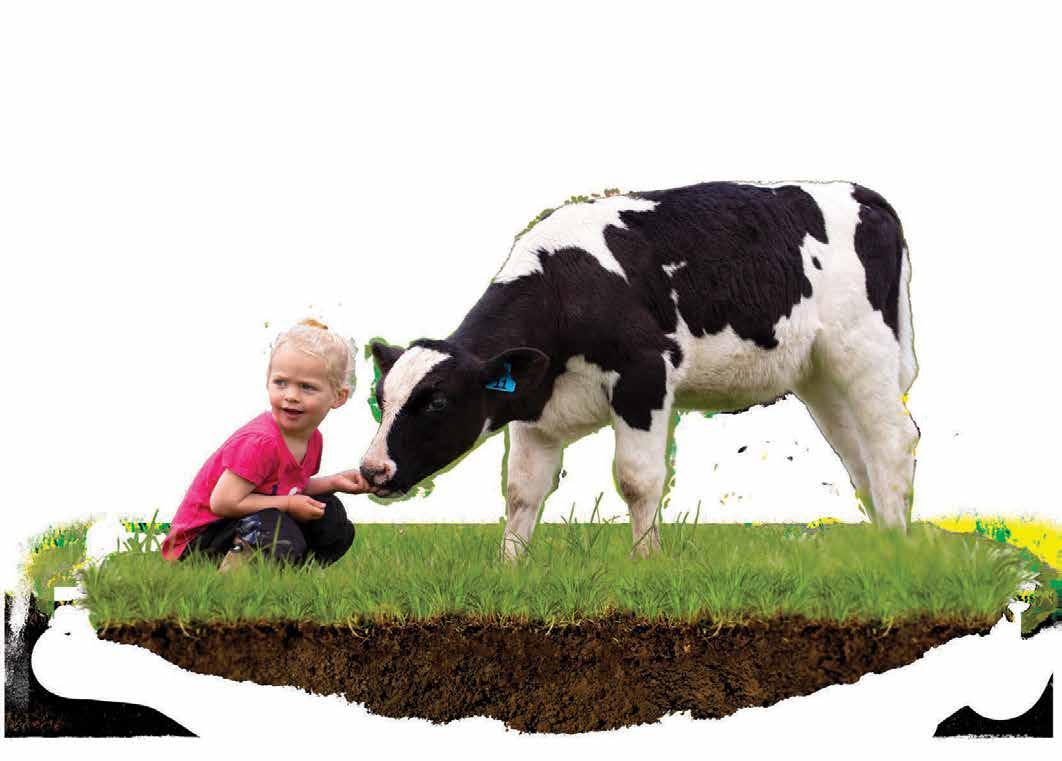
Our Premier Sires ® teams have been expertly chosen to help you accelerate your rates of genetic gain. While our Sexed team provides a 90% chance of generating heifer replacements from your best cows.
And every gain you make filters through the national database, building herd insights, and empowers other farmers to make better decisions for the next generation.
Talk to your Agri Manager today about farming for the next generation. Farm smarter with Premier Sires. There's always room for improvement
THE HIGHLY anticipated 2023 Discovery Project team has been revealed, marking an exciting milestone for New Zealand Holstein Friesian breeders.
Celebrating 20 years this year, the 2023 Discovery Project team consists of 31 heifers, sourced from 17 breeders, all aiming to make a lasting impact on the AI industry and the Holstein Friesian breed.
This year, Meander Holsteins –owned by Robert and Annemarie Bruin, Otautau – stood out with an impressive selection of six heifers entering the Discovery Project.
Meander Holsteins has had a considerable number of heifers included in the Discovery Team over recent years, consistently showcasing their ability to produce superior Holstein Friesian livestock.
In addition to Meander Holsteins, Lawwal Holsteins (K & MK Singh), Payne Farms Ltd (Brad Payne) and Tanglewood (MB & NL Hawkings) have each contributed three highBW heifers to the 2023 team, among others.
A joint venture between Holstein Friesian NZ and LIC, the Discovery


Project aims to support the opportunity for breeders to develop top cow families and breed bulls for the AI industry.
Each year, HFNZ members are invited to nominate their high-BW heifer calves for the Discovery Project. Just over 156 nominations were received for the 2023 team, with 62 selected for genomic testing by the
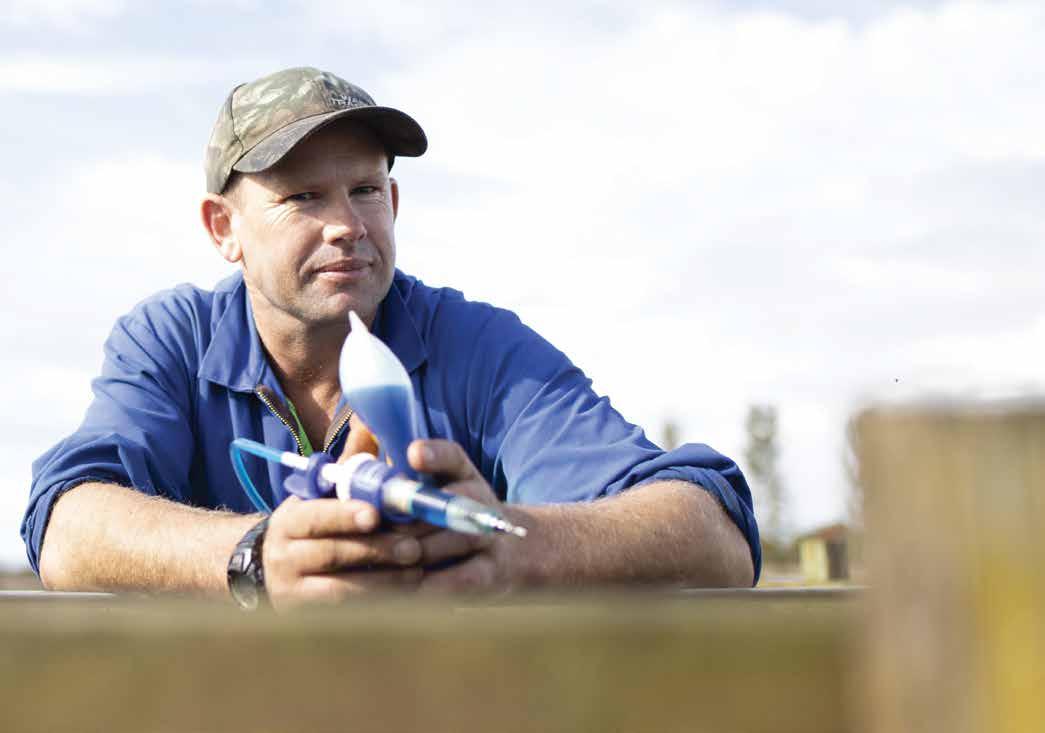
Discovery Project Committee.
Heifers undergo a meticulous evaluation to identify those with the highest potential for genetic excellence. Advanced breeding technologies such as genomic testing, Embryo Transfer (ET) and TVR (Trans-Vaginal Recovery) select the best heifers of potential bull-dam standard early on in their lives, allowing all breeders the oppor-
tunity to have their pedigree Holstein Friesian bulls recognised by the industry.
This approach ensures only the most exceptional heifers are chosen, in line with the programme’s commitment to advancing the Holstein Friesian breed.
Any heifer calves born within the Discovery Project are free from any
breeding restriction with LIC and can be nominated and screened in the hope they will be eligible to re-populate the programme.
Thanks to the Discovery Project, animals that would have been overlooked 10-15 years ago – ‘outliers’ –are now being selected based on their genomic merit, rather than BW alone.
All members can nominate a heifer, not just the mainstream bull breeders, allowing members to make the most of the genetics within the Holstein Friesian herd book.
The Discovery Project has seen success since its inception: between 2013-2020, Discovery Project teams delivered a total of 73 sires into LIC’s Sire Proving Programme, with 17 of these sires going on to graduate into LIC teams.
In 2022, LIC purchased six bulls from the 2020 Discovery Project team to join its Sire Proving Scheme for the 2022/23 season.
The Discovery Project has also shown success with contract mating, with several Discovery Project heifers from previous years’ teams still being contract mated today.
It’s really important to get the right minerals into these calves, to build natural immunity
“ ”
ing team.
WHEN IT comes to selecting beef sires for dairy, our breeding team identify sires whose trait information indicates they are genetically superior in calving ease, have a moderate gestation length, and have lower-than-average birth weights.
These selection decisions are largely based on Estimated Breeding Values (EBVs) for these traits – with most emphasis placed on calving ease and birth weight.
In general, we select sires that will not increase gestation length above that of the average New Zealand dairy cow (282 days). Both the Hereford and the Angus SGL offerings in our beef catalogue consist of sires that sit comfortably in the top
1% of their breed for gestation length.
Once the bulls enter widespread use, our genetics product and sire selection teams review MINDA data to monitor trends in calving ease and gestation length for sires.
In the Beef+Lamb NZ Dairy Beef Progeny Test, there is a wealth of data on how the progeny of individual beef sires perform when mated over dairy crossbred cows.
More than one-third of calves entering the
beef industry each year were born on dairy farms.
For the rearer and finisher, beef crossed over dairy cattle need to grow well, finish before their second winter, and yield.
Other than traits of dairy importance, sires with superior EBVs for weaning and yearling weight, carcass weight, eye muscle area (an indicator of yield), and intramuscular fat (or marbling) are our main selection criteria. Sires from Rissington Cattle
Company have feed efficiency data, so we are able to select individuals

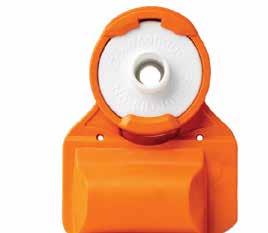
that are genetically superior for this trait. The ability of sires to
colour-mark beef crossed over dairy calves is also considered by our breed-
While the genetics behind coat colour of beef crossed over dairy animals is notoriously complicated, the Speckle Park, Belgian Blue, and Murray Grey sires were selected with coat colour in mind (in addition to their performance).
When looking at animal welfare and health, we put additional selection pressure on Polled sires within the beef offering.
Less than a handful of beef sires in this year’s LIC Genetics Catalogue are heterozygous polled (i.e. the sires have one copy of the horned gene). In future, we will target a 100% homozygous polled for our genetics catalogue.
• Paul Charteris is LIC’s beef genetics product lead
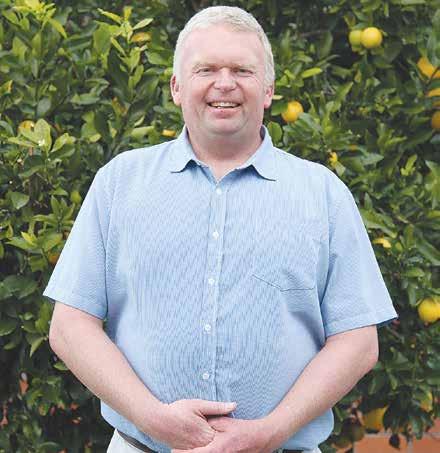
STRESS FREE MATING
Bulls weighing your feed supply down? Across New Zealand, dairy farmers are switching to 100% AB, removing bulls from farm. With the benefits of CowManager, a slightly longer AB season becomes a breeze, and you can confidently say goodbye to retaining bulls on farm.

More than one-third of calves entering the beef industry each year were born on dairy farms. For the rearer and finisher, beef crossed over dairy cattle need to grow well, finish before their second winter, and yield.
WITH THE huge German Agritechnica Event scheduled to take place in Hanover in November, the next few months will undoubtedly see a host of manufacturers teasing us with some of their latest innovations.
One of the first to show one of their latest ideas, Kuhn has released details of its GA 8131CL, an 8.0 metre, twin-rotor rake, that uniquely also features a 1.8m central pick-up assembly.

Over the last decade or so, twin-rotor rakes or swathers have become the “go to” for delivering
large windrows to feed the increasing appetites of self-propelled foragers and round or square balers. Typically bringing the two outside rows of crop onto the central row, outputs can be increased, but the negative is a central move that
sits on wetter ground and is flattened by the moved material.
Kuhn’s solution started as far back as 2016, with an idea to get
more air into the crop, with several solutions considered, including a rotor that was eventually dismissed as it moved material to one side.
The patented idea sees a 1.8m wide pick up mounted on the main frame ahead of the twin rotors that lifts and aerates the central swath
that is not worked by the rotors. Part of the standard specification of the rake, the 480mm diameter unit is hydraulically powered, with rotational
speed controlled by a restrictor valve. Lifted and lowered automatically during headland turns, the swather has a minimum power requirement of around 60hp.
In other Kuhn news, the company will also premiere an autonomous solution for arable farms, running on rubber tracks, called Karl. Part of the company’s €400m spent on R&D over the last decade, the project began around six years ago, with four generations of prototypes being evaluated. The company stresses that Karl is not a tractor, rather a concept born from the ‘tools’ the implement manufacturer produces.

Kuhn has released details of its GA 8131CL, an 8.0 metre, twinrotor rake, that uniquely also features a 1.8m central pick-up assembly.Kuhn’s new twin-rotor rake uniquely also features a 1.8m central pick-up assembly.
DUTCH MANUFACTURER Tobroco-Giant has added three telescopic wheeled loaders to the Giant G2700 series.


In the case of two models, the G2700 Tele HD and the G2700Tele HD+, the preferred power plant is a 50hp Kubota diesel, while the G2700E takes another path.
Like the existing G2700E, the G2700E Tele is equipped with two electric motors - the first, a 7kW version to power the drivetrain, delivering a top speed of 20km/h, and the second, a 12kW motor for the hydraulic system, delivering an output of up to 40 litres/ minute.
The electric models in standard spec feature a 260Ah, maintenance free, lithium-ion battery that can utilise an on-board charger to recharge the standard battery from

20% up to 80% in around three and a half hours. An external 300Ah fast charger system is said to take just 50 minutes to boost the power of the optional 520Ah battery from 20% up to 80%. An optional 390Ah battery is also
available.

The front section of the frame on the three newcomers is based on the G2700 X-Tra, although the 3.7 metre maximum lift height of all three models is almost 50% higher than
THE LEMKEN SprayHub front tank can now be used with the SprayKit application unit and a rearmounted hoeing machine for band spraying during hoeing.
the 2.5m delivered by X-Tra models. The standard hydraulic layout sees all pipework concealed within the boom, with all three models equipped as standard with a mechanical double-acting hydraulic service. Meanwhile,
the two diesel versions are available with two proportional double-acting hydraulic services (single on the G2700E Tele). All three machines are expected to be available before the end of this year.
The combination of both implements can help to reduce farmers’ workloads. For the upcoming season, the SprayHub and SprayKit have been equipped with new functions like an electrical single-row deactivation via ISOBUS which enables row-by-row automatic section control by means of GPS. In addition, there is also a version of the SprayKit for under-root fertilisation with the Azurit precision seed drill. The SprayHub front tank is equipped with its own controls, agitator and cleaning system. It is ISOBUS-controlled and can be operated via the “iQblue spray” software. The SprayHub has a 1100 or 1500 litre tank volume and is fitted with a clean water tank, a hand wash tank and a filling filter. There is an additional induction nozzle to help break up solid materials. A CTS connection for contactless induction is also available.
Trough feeding is a thing of the past as our 3-Way Restriction System allows you to control intake, feeding calves as low as 0.5kg/head/day.
“We finished our calves at weight one month earlier with nearly zero wasted meal.”V. Rutherford, Dargaville

